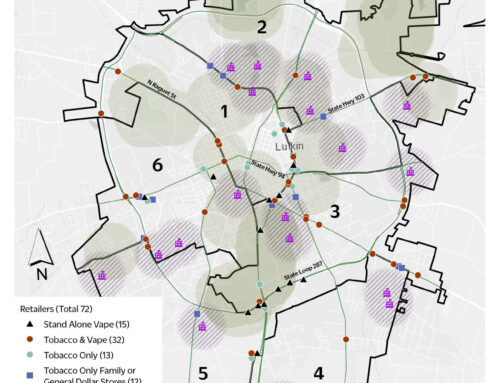We recently hosted a webinar with CADCA GHEA about why local-level policy efforts matter for for public health and shared strategies that have proven successful for local policy implementation.
Local governments are on the front lines of adopting laws and policies that have the potential to improve health outcomes and reduce inequities. CADCA’s Geographic Health Equity Alliance, in collaboration with Counter Tools is hosting a three-part webinar series to equip attendees with an understanding of why local policy solutions are important, lessons learned from local policy implementation efforts and innovative policy strategies built at the local-level.
This first webinar, “Building the Rationale for Local Policy Change” was on June 21st. Speakers provided a broad rationale for local-level policy efforts and the implications for public health, as well as insight on strategies that have proven successful for local policy implementation.
Watch the recording:
Download the presentation slides (PDF)
Speakers:
Brooks Rainwater is the senior executive and director of the National League of Cities’ (NLC) Center for City Solutions. Rainwater drives the organization’s research agenda, community engagement efforts, and leadership education programming to help city leaders create strong local economies, safe and vibrant neighborhoods, world-class infrastructure, and a sustainable environment. As an advocate for strong local leadership, Rainwater has published numerous reports and articles on innovative solutions that lead to vibrant and successful cities. He also speaks regularly across the country and overseas on issues facing city leaders. Rainwater’s recent research and interests include advancements in technology and city innovation, the sharing economy, and how the rise of state preemption is impacting local authority.
Nestor M. Davidson joined the faculty of Fordham Law School in 2011 and was named the Albert A. Walsh Chair in Real Estate, Land Use and Property Law in 2017. Professor Davidson has published widely in the fields of state and local government law, property, and affordable housing law and policy. Professor Davidson practiced with the firm of Latham and Watkins, focusing on commercial real estate and affordable housing, and served as Deputy General Counsel at the U.S. Department of Housing and Urban Development. Professor Davidson founded and is the faculty director of the Urban Law Center.
Sara Bartel is a senior attorney at ChangeLab Solutions, where her good governance portfolio covers legal authority and preemption, the policymaking process, and cross-sector partnerships for upstream community health improvements. Her work spans issues such as healthy retail, food systems, tobacco use prevention, maternal & child health, shared use, housing, and support for working families. Sara’s legal background is in health, food, and the environment, as well as civil rights litigation. Sara is based in Fort Collins, CO, where she lives with her partner and their two little kids.
Local Control webinar series
CADCA’s Geographic Health Equity Alliance, in collaboration with Counter Tools hosted a three-part webinar series to equip attendees with an understanding of why local policy solutions are important, lessons learned from local policy implementation efforts and innovative policy strategies built at the local-level.
Webinar 1: Building the Rationale for Local Policy Change. Speakers provided a broad rationale for local-level policy efforts and the implications for public health, as well as insight on strategies that have proven successful for local policy implementation.
Webinar 2: Using Local Momentum to Drive State and Federal Policy Change. This webinar featured leaders from the Tobacco 21 and smokefree air movements to discuss how tobacco control policy strategies at the local level helped drive policy change across the country.
Webinar 3: Innovative Local Solutions in Public Health. The third webinar in the series covered local-level policy solutions in Maryland and California. These efforts advanced policies relating to alcohol and healthy food.





